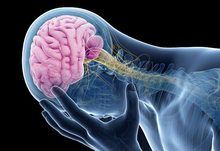
Over the past decade it has been confirmed that, overall, adults with depression have higher levels of inflammation. High-sensitivity C-reactive protein (hs-CRP) is a commonly-used measure of inflammation.
In a recent study [1], levels of hs-CRP were examined in adults with treatment-resistant (TRD) depression and compared to adults with non-TRD. The researchers found that levels of hs-CRP were higher in patients with TRD at both baseline and after antidepressant treatment. In fact, hs-CRP was over 50% higher in patients with TRD compared to non-TRD. Higher levels of hs-CRP were also associated with greater symptoms of anxiety/somatization, sleep difficulties, and overall depressive symptoms.
These findings suggest that in adults with higher inflammation (as measured by CRP levels), antidepressant treatments are likely to be less effective. This means that additional, integrative treatments should be considered in depressed adults with higher inflammation. Ultimately, the most effective treatments involve those that target the causes of inflammation. These causes can be different for different people, so it is important that someone’s unique cause(s) of inflammation are identified. Some common sources of inflammation include:
In addition to targeting the above inflammatory factors, taking anti-inflammatory foods, spices and herbs may also be helpful. For example, fruits, vegetables, olive oil, legumes, nuts, and seeds may be particularly helpful. There is also research confirming curcumin (from the spice turmeric) [2] and saffron [3] are effective natural antidepressants. These are also natural anti-inflammatories.